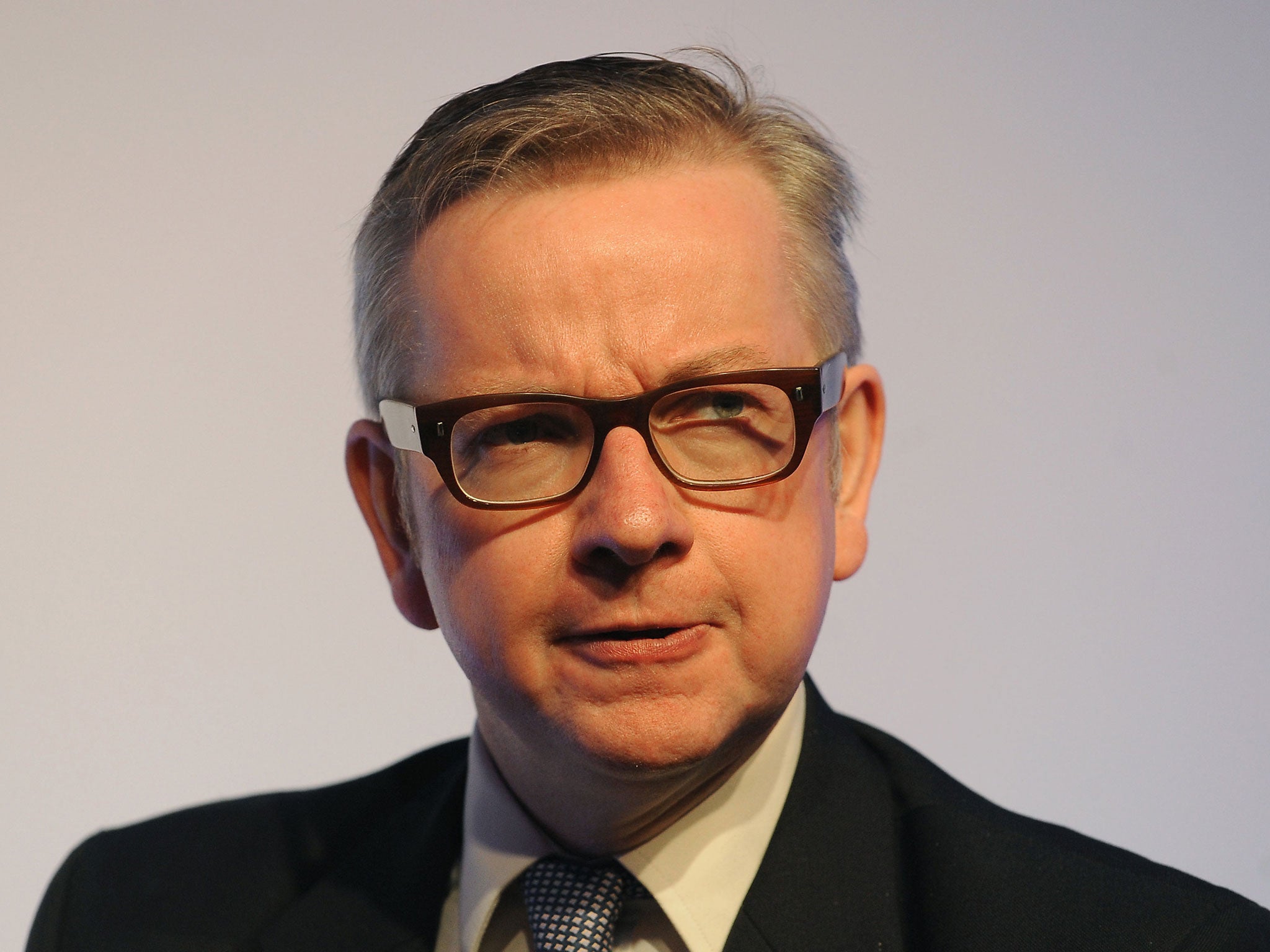Public sector strikes: The day Michael Gove took his place on the picket line
'People should turn up to work,' David Cameron has told MPs. Perhaps that hasn't always been the case

Your support helps us to tell the story
From reproductive rights to climate change to Big Tech, The Independent is on the ground when the story is developing. Whether it's investigating the financials of Elon Musk's pro-Trump PAC or producing our latest documentary, 'The A Word', which shines a light on the American women fighting for reproductive rights, we know how important it is to parse out the facts from the messaging.
At such a critical moment in US history, we need reporters on the ground. Your donation allows us to keep sending journalists to speak to both sides of the story.
The Independent is trusted by Americans across the entire political spectrum. And unlike many other quality news outlets, we choose not to lock Americans out of our reporting and analysis with paywalls. We believe quality journalism should be available to everyone, paid for by those who can afford it.
Your support makes all the difference.In a black-and-white photograph taken a quarter of a century ago, you can see a keen, studious looking young man on a picket line outside an Aberdeen newspaper office, where a dispute had flared up between management and the National Union of Journalists.
“People should turn up to work,” David Cameron told MPs at Prime Minister’s Question Time yesterday, as he hinted that new proposals to tighten anti-strike laws are to be part of next year’s Tory election manifesto. There are special days, of course, the Government takes the opposite view, such as on the opening and closing days of the London Olympics, when people were encouraged not to go to work, to maximise the success of an event in which national prestige was at stake.
And seemingly, there was a time when it was all right to strike, when young Michael Gove and his fellow journalists at the Aberdeen Press and Journal had a grievance. Mr Gove has since said that he would rather not have taken industrial action that day in 1989, soon after he had left university, but he was new in the job and did not want to alienate his colleagues.
Denying the good people of Aberdeen their daily news was, of course, a bit less disruptive than closing a school for a day, for which the National Union of Teachers has been roundly condemned. “How can it possibly be right for our children’s education to be disrupted by trade unions acting in that way?” Mr Cameron demanded.
After all, this is not like those two occasions in April and May 2011, when the Government decided that the schools should close for a day, for a royal wedding and then for a referendum. The Conservatives would argue that those were special occasions that brought the nation together, whereas a strike is a deliberately disruptive act.
They also argue that the union leaders who call the strike do not genuinely represent the majority of the members, many of whom – they suspect – take part in strikes reluctantly, under pressure from union activists. It is well documented, after all, that there are a very large number of people who belong to a union, and vote Conservative. One maverick Tory MP, Robert Halfon, has picked up on that fact to argue that the party go back to treating unions as potential partners rather than as the enemy, as they used to do in the 1950s and 1960s. In 2012, he published a pamphlet entitled ‘Stop the Union-Bashing’ – which has not had any notable impact on party policy.
A pressure group that has had more success in picking up support is the Trade Union Reform Campaign, revived after the 2010 election to snipe at union rights and privileges. Its prominent figures have no known union connections. Its founding chairman, Aidan Burley, is leaving Parliament next year as a result of attending a stag party where the soon-to-be bridgeroom was dressed as a Nazi, in a uniform supplied by Mr Burley. His successor, David Morris, is a former hairdresser, which is not a profession in which unions have ever had much of a presence.
Senior Tories with any kind of union background are rare, though a notable exception is the Transport Secretary, Patrick McLoughlin, formerly of the National Union of Mineworkers. On the day Arthur Scargill called the miners out on strike in 1984, McLoughlin was one of about 20 miners at his Staffordshire colliery who defied the call and marched into work.
But for most, including David Cameron, belonging to a union, or even working in an office or factory in the company of union members, is beyond their life’s experience. So, say it for Michael Gove, at least he knows what it is like to be out on strike.
In the original article we incorrectly stated that it had been Aidan Burley who was wearing the Nazi uniform. He only supplied it to the soon-to-be bridgeroom. We apologise for the error (Wednesday, 15 April).
Join our commenting forum
Join thought-provoking conversations, follow other Independent readers and see their replies
Comments